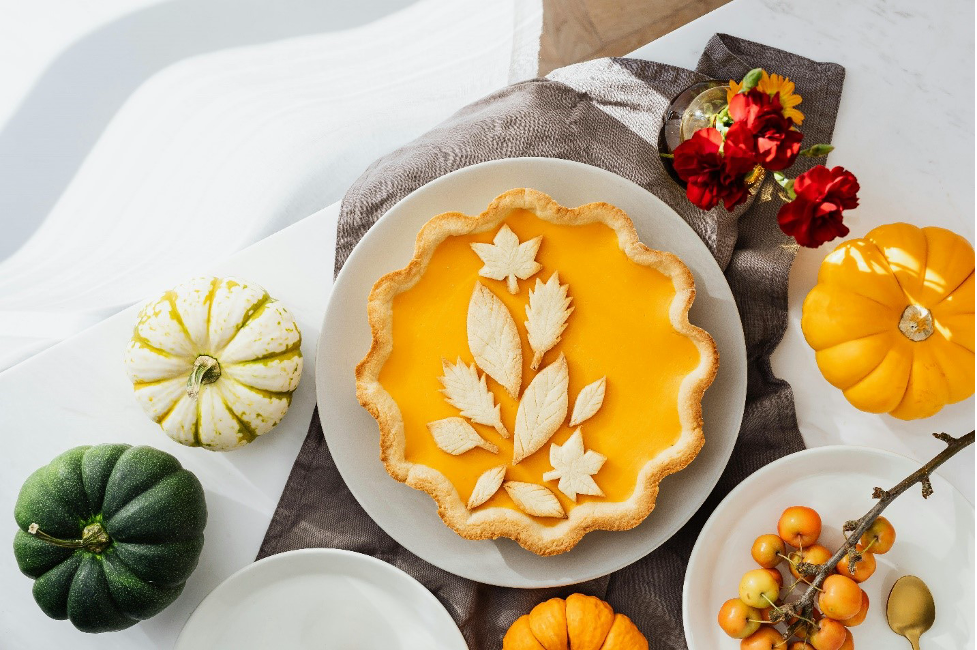By Chapel Taylor-Olsen, RN-BSN & Amanda McIntosh
This time of year can bring with it so much potential and in that very potential lies the perfect equation for holiday stress and overwhelm. The good news is, Americans also cite spending time with friends or family and eating good food as factors that help lift their moods during the winter months (APA, 2024). If we take proactive steps to plan for holiday stress, we can let go of the bad parts and benefit from the good parts to create a holiday season we actually enjoy! Here are a few ideas to help enjoy your holidays:
- Remember that “imperfection is healthy and normal.” Gatherings can be as flexible and dynamic as the people who attend them (Johns Hopkins Medicine, n.d.).
- Set healthy boundaries. Setting boundaries can help us have clearer expectations, better communication, and stronger relationships over time (Martin, 2021).
- Take care of your physical and mental health. Many people find that getting outside, even in cold weather, helps them cope better with winter months (APA, 2024). If you prefer to exercise indoors, Castle County now has several gyms and fitness centers that you can sign up for. Focus on eating a balanced diet, rather than cutting out all sweets or treats. Remember to drink water throughout the day to stay hydrated.
- Seek help when you need it. Basic “holiday stress” is something that comes and goes. It’s based on the changes that happen with the season and the short-term demands we (and society) place on ourselves (Ewards, 2016). However, many Americans will also experience serious mental health concerns that would benefit from professional support this year. In fact, people living in rural areas, like ours, are more likely to have this experience than our urban relatives (APA, 2021). We are also more likely to have a hard time finding a mental health provider. If you feel like you’re having more than just “normal stress,” consider finding professional help.
- Here is a resource that can help you search providers based on your zip code and many providers now offer telehealth options: gov/find-help. You can also find local resources, here: extension.usu.edu/heart/resource-books or consider an online support group through NAMI Utah and you can find those by going to: namiut.org/support-and-education/support-groups.
- Holidays can be difficult when a loved one has passed away. Allow yourself the grace and compassion to experience all the feelings and emotions that may arise. Have a safety plan for yourself and other loved ones if it becomes too activating or triggering. Consider including self-care strategies (e.g., com/blog/holiday-self-care). Engaging in open and honest conversations with your loved ones about your trepidations, boundaries, and preparations can be extremely helpful and could ease some holiday angst. Remember to always put your mental health first. For several examples of how to honor your loved one and find healthy ways to cope, you can go to: empathy.com/grief/facing-the-first-holiday-season-without-your-loved-one.
- If your loss is by suicide, the American Foundation for Suicide Prevention has a program specifically for loss survivors to seek peer support. You can find out more about that by going to org/healing-conversations/. You can also find support by going to liveonutah.org/resources/ (Spanish version is available).
Let his holiday season be what it is and seek out small moments of joy wherever you find them. If you’d like more ideas on how to decrease your holiday stress, check out the resources below.
Resources
USU Extension Mental Health Resources: extension.usu.edu/mentalhealth/
Happy holidays are built on setting healthy limits. PsychologyToday.com. psychologytoday.com/us/blog/conquering-codependency/202112/healthy-holiday-boundaries
4 mindful tips to de-stress this holiday season. HopkinsMedicine.org. hopkinsmedicine.org/health/wellness-and-prevention/4-mindful-tips-to-destress-this-holiday-season
10 tips to reduce stress and take care of yourself during the holidays. Health.UCDavis.edu health.ucdavis.edu/blog/cultivating-health/10-tips-to-reduce-stress-and-take-care-of-yourself-during-the-holidays/2023/12
References
American Psychiatric Association [APA]. (Oct 30, 2024). Two in five Americans say their mood worsens in winter; 29% say “falling back” hurts their mental health. Psychiatry.org. https://www.psychiatry.org/News-room/News-Releases/APA-Poll-Mood-Changes-in-Winter
American Psychiatric Association [APA]. (Nov 18, 2021). National report offers solutions to overcome the three major obstacles to rural mental health care. Psychiatry.org. https://www.psychiatry.org/News-room/News-Releases/National-Report-Offers-Solutions-to-Overcome-the-T
Edwards, S. (2016). Holiday stress and the brain. Harvard.edu. https://hms.harvard.edu/news-events/publications-archive/brain/holiday-stress-brain
Johns Hopkins Medicine. (n.d.). 4 mindful tips to de-stress this holiday season. HopkinsMedicine.org. https://www.hopkinsmedicine.org/health/wellness-and-prevention/4-mindful-tips-to-destress-this-holiday-season
Martin, S. (Dec 16, 2021). Healthy holiday boundaries: Happy holidays are built on setting healthy limits. PsychologyToday.com. https://www.psychologytoday.com/us/blog/conquering-codependency/202112/healthy-holiday-boundaries

